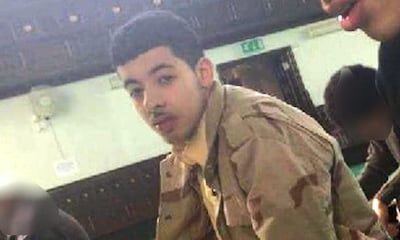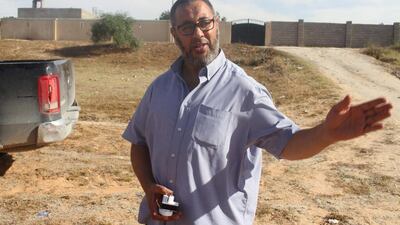The family of Manchester Arena attacker Salman Abedi have refused to tell investigators how the British-born teenage tearaway developed into a suicide bomber.
His parents and elder brother have declined to answer questions posed by an official inquiry into the massacre.
Abedi killed 22 after detonating a bomb as parents arrived to pick up their children from a concert by US singer Ariana Grande at the venue in May 2017.
The inquiry, led by retired judge John Saunders, opened on Monday.
Its responsibility includes investigating to what extent the Abedi family was a radicalising influence on Salman, 22, and his brother Hashem before the attack, which also injured hundreds.
Hashem, 23, who was in Libya at the time of the blast, was last month jailed for at least 55 years for his role in preparations and providing help to his elder brother in the hours before the blast.
British police want to interview their father, Ramadan Abedi, a former Libyan government official after the downfall of Muammar Qaddafi, who has not returned to the UK since the attack.
The pair’s older brother, Ismail, has also declined to answer questions because he fears he may incriminate himself, the inquiry has been told.
Abedi family's wall of silence
Investigators have also been snubbed by Hashem Abedi in prison.
His parents, who are believed to have been living in Tripoli since 2016, have also not responded in any substantive way, the inquiry has heard.
The Abedi family, staunch opponents of Qaddafi, fled the regime and settled in the north-west English city of Manchester in 1994, where they continued their opposition with like-minded emigres.
Ramadan Abedi was a member of the Libyan Islamic Fighting Group, which was proscribed by the British government as a terrorist organisation until last year.
In August 2011, he travelled to Tripoli with the two sons who would become terrorists to deliver medical supplies and aid to rebels fighting the Qaddafi regime, a report by the UK Parliament’s intelligence committee said.
“It appears highly likely that Salman and Hashem’s extremist views were influenced by their father and fostered by other members of their immediate family,” the committee said in a 2018 report.
Ramadan went to live in Libya in 2016, only returning to the UK in the weeks before the bombing to fetch Salman and Hashem because of concerns about their radicalisation, police believe.
The family confiscated Salman’s passport but he travelled back to the UK just days before the attack to carry out the final preparations.
The inquiry heard that Salman received messages from a Libyan phone number connected to the Abedis in the hours before the suicide bombing, raising questions about the role the wider family might have played.
He received two text messages within four minutes from the number after completing surveillance of the venue, where he launched his attack less than four hours later.
The contents of the message are not known but Ismail, who has not been charged in connection with the bombing, received a message about the same time from the number, the inquiry heard.
It read: “Allah’s peace and blessings be upon you.”
Paul Greaney, the counsel to the inquiry, on Monday said: “The message and the coincidence of its timing with what was happening in Manchester may be innocent.
“The inquiry will need to explore whether, and if so to what extent, the Abedi family or members of it were a radicalising influence on Hashem Abedi and Salman Abedi.”

Salman made a call about two hours before the attack to the Libyan number.
It reinforced the need to examine whether the family “may have played a part in the radicalisation of Salman Abedi or even have known what was to occur or have suspected it”, Mr Greaney said.
About the same time, Ismail received a further message from the Libyan number that could be read as a complaint from his mother about her husband’s extremist views, the inquiry has been told.
After the suicide bombing, Ramadan was reported to have said that Salman had not been aligned to any group.
Expressing astonishment that his son had been involved, he said: “Salman doesn’t have this ideology. There are hidden hands behind this.”
The public inquiry, which will continue into 2021, was delayed until after the conclusion of the trial of Hashem.
It is investigating whether Salman could have been stopped and what broader lessons could be learnt to prevent future attacks.
Part of the hearing will be conducted behind closed doors because of national security concerns.


